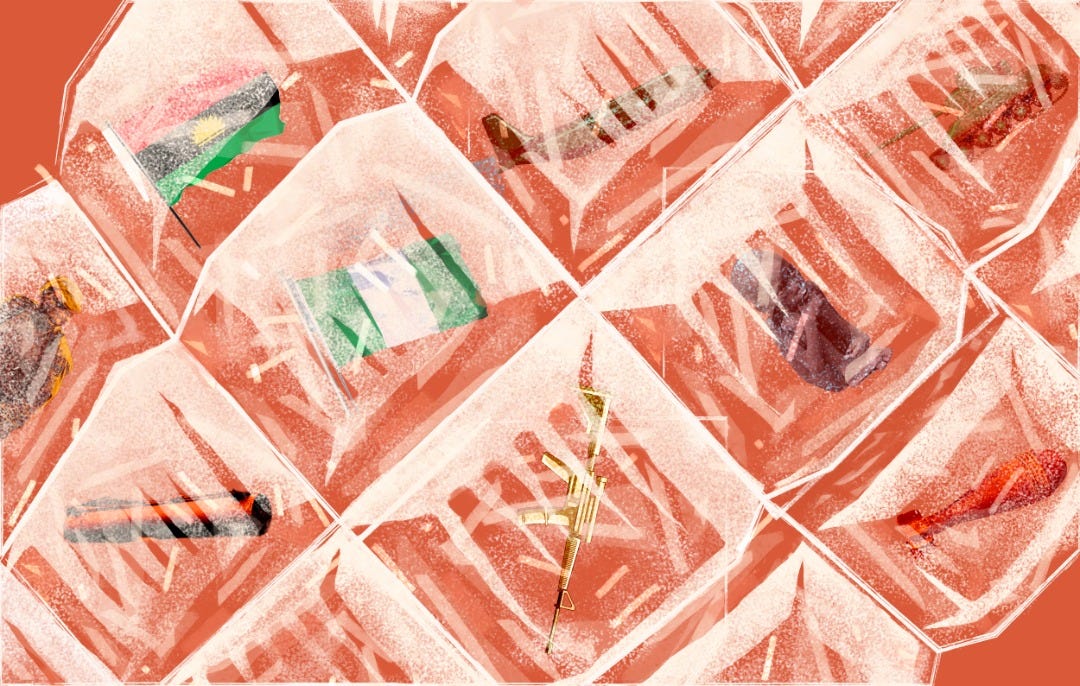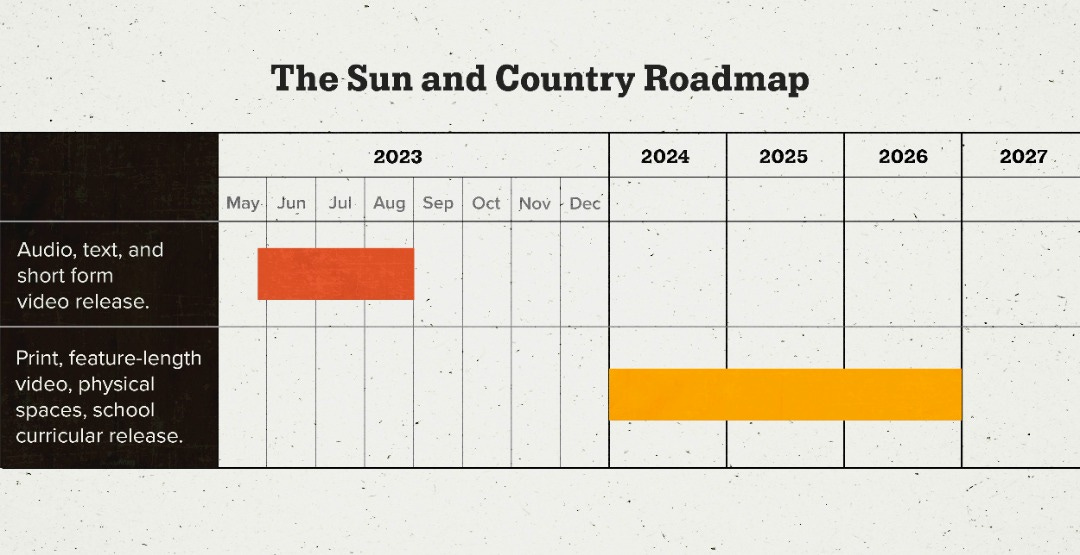We're Making Sun And Country
A Nigerian Civil War Story Is Coming
Rumours rose with the morning on Saturday, the 15th of January, 1966. First, it was news that Prime Minister Tafawa Balewa had gone missing the night before. Then the news of his death followed. Then the killing of Sir Ahmadu Bello and Ladoke Akintola, Premiers of Northern and Western Nigeria.
Later that weekend, Major Kaduna Nzeogwu’s broadcast from Kaduna Radio put all doubts to sleep; a group of young officers, with Nzeogwu as one of their leaders, had staged a coup. Nzeogwu was nine years into his life as a soldier and a month shy of his 29th birthday. The revolutionary council, he said, wanted to establish a strong united and prosperous nation.
The agenda for a united country set Nigeria on a divisive course – that we were perhaps already on – but one that was accelerated and transformed forever. First, pogroms a few months later saw Igbos and peoples of the Eastern region killed in their thousands across Nigeria, especially Northern Nigeria. Then a year and a half after Nzeogwu’s speech, Nigeria broke apart, and its Civil War began.
On the 15th of January, 1970, the Biafran War ended after the Biafran leadership surrendered to the Nigerian Government. In the two and a half years of war, up to two million people died from fighting, getting caught in the crossfire, bombardment, disease and starvation, most of them soldiers and people of the shortlived Biafran Republic.
The Nigerian Civil War ripped apart a country glued together by colonial forces across hundreds of ethnic lines. To this day, it continues to be a force for our divisive discontent.
There are more Nigerians alive anywhere in the world who didn’t see the war than those who did. Yet, not only are we living in the consequences of a time before our own, we know very little about the Nigerian Civil War. We didn’t see the war, but we’ve grown up in the angst, trauma, and deep sense of longing it created.
It’s why we’re making Sun and Country, a story-led guide to the Nigerian Civil War that explores how it began, how it played out on every side, locally and across the world, and how it continues to affect us today.
We’re a small team of Nigerians from every background working to build a body of work that captures the Nigerian Civil War with nuance and care.
The first step to making Sun and Country was rigorous research, working with over a dozen researchers and up to 60 resources on the Nigerian Civil War – books, papers, journals, and other archival materials.
One night near the end of 2022, after we’d completed four months of secondary research, we copy-pasted our notes onto a Google Doc and were hit with a five-hundred-and-fifty-four thousand words long document. That’s like a thousand pages of text. The culmination of our study is the most comprehensive timeline of the war we’ve ever seen, giving us multiple perspectives of the conflict as it unfolded in place and time.
Through the next four years, we’ll take all that research, condense it, and develop stories across multiple formats – text, audio, video in long and short form, print, and physical spaces.
We will create a body of work such that a person who knew next to nothing can now have an informed, empathetic, and nuanced conversation about the war. And in a way that is easy to consume, have conversations with, and share.
The first format will be interactive narrative essays that are as immersive as they’re gripping.
The second format will be audio, where you’ll also hear the voices of people who experienced the war or had their lives directly and deeply affected by it. It’ll be available on podcast streaming platforms and, possibly, on the radio.
Making Sun and Country demands a lot of rigour, resources, nuance, and care. So we’re going to create a body of work that helps a new generation understand a conflict that transformed not just a country but how the world saw not just Nigerians but black Africans forever.
Please subscribe for updates; we want 10,000 people waiting in line for May 30. Share this with everyone in your private groups and public channels. The more people see it, the more people subscribe, and the quicker we get to our 10,000. Follow us on Twitter and Instagram.
If you have any questions or thoughts, share them in the comments section. Or email. We’re looking forward to reading all of them.
See you again when we share the next update. The next time you hear from us, it’ll be us telling you about our release date.
Thank you.





The closest picture to the Civil War (that I have) is from the Book "Why we struck" by Adewale Ademoyega. It was a profound book, and I hope Sun And Country gives a perspective of impacted lives.
Rooting for you and the team